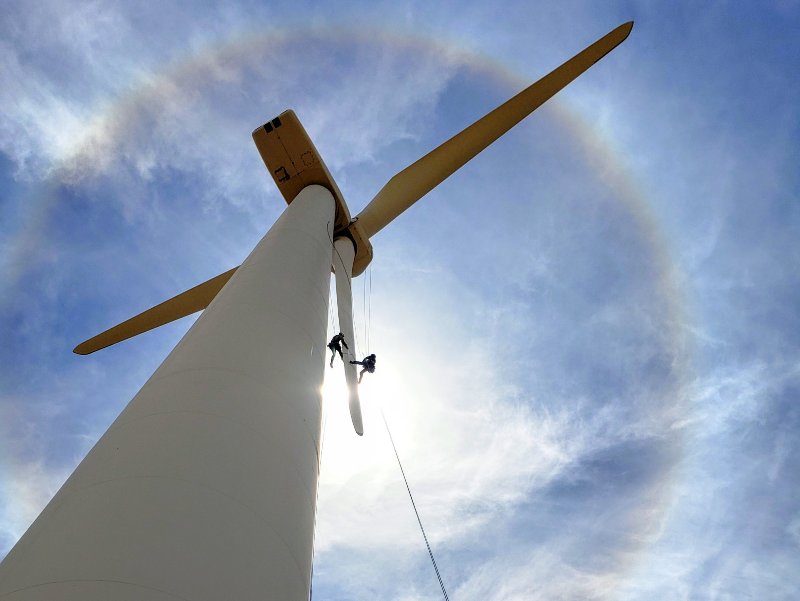
The 2022 installation was completed by technicians from hemmerschütz GmbH on behalf of windfarm owner Offshore Windpark RIFFGAT GmbH and follows the trial application of the custom-made erosion shields in 2020.
Riffgat offshore wind farm was commissioned in 2014. The wind farm includes a fleet of thirty Siemens 3.6 -120 turbines installed on monopiles 15 kilometres off the island of Borkum, Germany.
According to Edge Solutions, the shields were developed using a bespoke version of INEOS’s ultra-tough Luran SC thermoplastic material, created specifically for wind turbine blades.
Each shield is up to one metre long and is custom formed to the blade type and then bonded into place.
Edge Solutions’ managing director David Urch said: “We’ve used feedback to improve the Armour Edge system with end-to-end flush joints to further simplify application and enhance performance. This has been proven at Riffgat, where last summer’s installation was carried out in a third less time than the previous edge protection used by the farm.”
Dirk Warnecke, managing director of Offshore-Windpark Riffgat GmbH, said: “The learning curve concerning handling and installation of the shields, which Edge Solutions made from the first tests in 2020 to today’s product is impressive. After a very smooth application, we are looking forward to see the product’s performance in the upcoming operation years.”
Leading edge erosion
Leading edge erosion describes the erosion of a wind turbine blade’s leading edge by rain, hail, UV, sand, dust, insects and other airborne particles.
Erosion of the wind turbine blade can negatively impact the blade’s aerodynamic efficiency, reducing reliability, decreasing performance and increasing maintenance costs. Study results have shown that a heavily eroded wind turbine blade can reduce annual energy production by up to 5% for a utility scale wind turbine.